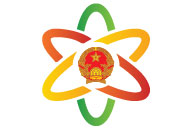
News
Seven groups of solutions to build a smart Customs
Summary
Updated on : 04-12-2021

 |
| A Customs officer at the Operation Center for Customs IT System. Photo: T.Binh |
The General Department of Customs proposed seven groups of solutions to build a smart Customs model.
First, completing the legal basis on the basis of reviewing, amending and supplementing legal documents and procedures to meet the requirements of a smart customs model and digital customs.
Second, simplifying customs procedures on the basis of applying modern customs management standards; streamlining the customs structure at the grassroots levels towards building a centralized customs model in accordance with the management area and work requirements, reducing the intermediary stages, minimise overlaps, inconsistency, negativity and harassment in the performance of customs officers, strengthening training to improve the capacity of customs officers.
Third, strengthening international cooperation, information exchange to access the management model of some advanced countries and the modern customs model recommended by the World Customs Organization (WCO), the risk management model and the compliance management model.
Fourth, applying scientific advances such as internet of things (IoT), Big data, Blockchain, artificial intelligence (AI), business intelligence (BI), cloud computing and Mobility.
Fifth, redesigning the overall IT system of the Customs sector, building tools for IT solutions to support state management requirements for exported and imported goods, and means of transport on entry, exit and in transit in the direction of centralized management at the Customs office.
Sixth, improving information collection and processing, promoting information exchange through the ASEAN Single Window, intelligence information, exchange of electronic C/O; and strengthening coordination and exchange of information with other ministries and agencies.
Seventh, researching and proposing customs service models in the direction of socialization and enhancing the customs-business connection; proposing forms of public-private cooperation in the field of customs.
Most Recent News
| Title | Category | Created On |
|---|---|---|
| Hội nghị Đối thoại về Quản lý Rủi ro Kiểm soát Thương mại Chiến lược | News | 2026-01-19 14:30:37 |
| Hội nghị Đối thoại về Quản lý Rủi ro Kiểm soát Thương mại Chiến lược | News | 2026-01-19 14:30:33 |
| The Department of Viet Nam Customs signed a Statement of Intent to enhance cooperation with the Australian Border Force | News | 2025-12-18 15:40:33 |
| The Department of Viet Nam Customs held a working meeting with the high-level delegation of the ASEAN-Europe Business Council and the European Business Association in Viet Nam | News | 2025-12-17 15:22:59 |
| Cục Hải quan Việt Nam tiếp và làm việc với Phái đoàn cấp cao của Hội đồng kinh doanh ASEAN - Châu Âu và Hiệp hội doanh nghiệp châu Âu tại Việt Nam | News | 2025-12-11 14:39:37 |
Search All News
|
A Quick Intro |
Search Trade Information
|
|
|
|
|
|
|
|
|
|
|
|
|
|
Feature Information
|
|
|
|
|
|
|
|
|
|
|
Information & Articles
|
|
|
|
|
|
|
|
|
|
|
|
Contact Us! If you cannot find what you require in this website please feel free to contact us. Click here to send us a message >>>
|